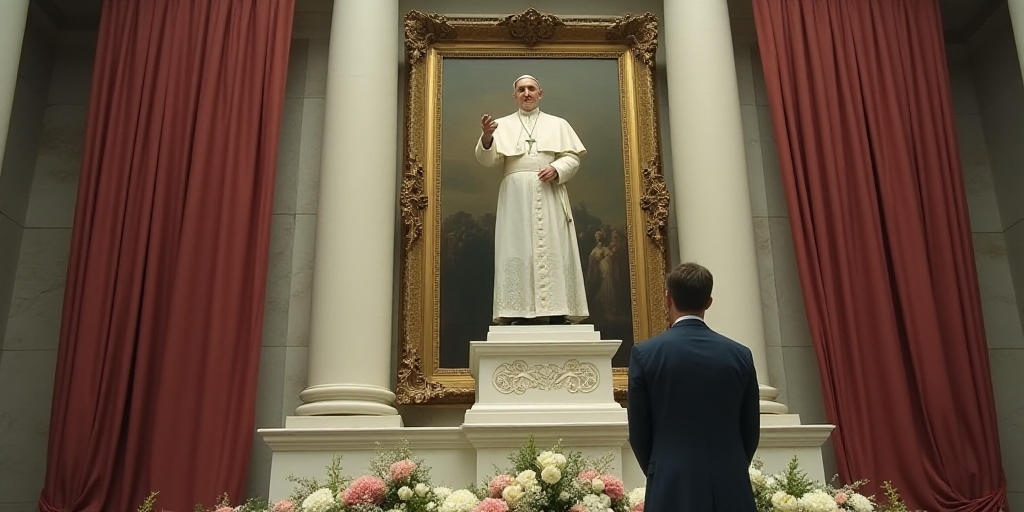Background on Pope Francis and His Impact
Pope Francis, aged 88, passed away unexpectedly on Monday following a stroke and cardiac arrest, as announced by the Vatican. His papacy, often tumultuous, saw him frequently clash with traditionalists while advocating for the poor and marginalized. Earlier in the year, he spent five weeks in the hospital due to double pneumonia but returned to the Vaticano nearly a month ago, appearing well during Easter Sunday.
Born in Argentina, Francis became the first Latin American pope. His death has triggered traditional rituals, including the breaking of the “Ring of the Fisherman” and lead seal, signifying that no one else can use them.
Funeral Details and Attendees
The funeral for Pope Francis will take place on Saturday at 10:00 local time in St. Peter’s Square, according to the Roman Catholic cardinals who decided on the solemn ceremony that will draw global leaders.
President Donald Trump, who had public disagreements with the pope on issues like immigration, stated that he and his wife would travel to Rome for the service. Other heads of state confirming their attendance include Argentine President Javier Milei (Francis’ home country), Brazilian President Luiz Inácio Lula da Silva, and Ukrainian President Volodymyr Zelenskyy.
Additional Global Leaders Attending
- French President Emmanuel Macron
- President of the European Commission Ursula von der Leyen
- European Council President António Costa
- German Chancellor Olaf Scholz
- Portuguese President Marcelo Rebelo de Sousa
- Prime Minister Luis Montenegro
- King Felipe VI and Queen Letizia of Spain
- British Prime Minister Keir Starmer
Russian President Vladimir Putin, however, does not plan to attend the funeral, according to the Kremlin.
Preparations for a New Pope
All Roman cardinals were summoned on Tuesday to decide the sequence of events in the coming days and review the daily functioning of the Church before electing a new pope. The conclave to choose a new pope typically occurs 15-20 days after a pontiff’s death, so it should not begin before May 6.
Approximately 135 cardinals can participate in the secret voting, which may last several days until white smoke emerges from the Sistine Chapel’s chimney, signaling the world of a new pope’s selection. As of now, there is no clear frontrunner to succeed Francis.
Pope Francis’ Legacy
Francis inherited a disorganized Church and worked to reform the Vatican’s central administration, eradicate corruption, and eventually address clergy abuse issues. He often clashed with conservatives who viewed him as excessively liberal and overly accommodating to minority groups, such as the LGBTQ+ community.
Francis appointed nearly 80% of the cardinal electors spread worldwide who will choose his successor, potentially increasing—though not guaranteeing—the likelihood of his successor continuing progressive policies.
Many of these cardinals are less known internationally and will have the chance to get acquainted during meetings called Congregations General, held before a conclave’s start, where they outline the qualities needed for the next pope.






